Continuing the session agenda, on the afternoon of November 9, the National Assembly discussed in groups the Draft Law on Teachers.

Sharing their views on the sidelines of the session, many National Assembly deputies agreed with the need to develop a draft Law on Teachers to institutionalize the Party's views and policies on teachers. At the same time, it will contribute to perfecting the legal system and promptly supplementing new and specific policies to build and develop the teaching staff.
The opinions suggested that the drafting agency continue to review and evaluate the full and comprehensive impact of the new policy, especially the conditions of financial resources to ensure feasibility. At the same time, it is necessary to carefully study international experience, refer to policies and laws for teachers to complete the draft Law in accordance with the practical conditions of our country.
Delegate Tran Thi Kim Nhung (Quang Ninh) said that the Law on Teachers contributes to improving the quality of the national education system. However, teachers are currently working in the public and non-public sectors.
Teachers working in the public sector are currently regulated by the Law on Public Employees. Teachers in the non-public sector are also considered a profession according to the law. The delegate suggested that the provisions of the Law on Teachers regulating these two subjects should include issues of the Law on Public Employees related to teachers in the content of the law for consideration of consistency. The delegate also suggested clarifying the contents related to the regime for teachers in the two sectors such as salary, retirement age, social insurance benefits, etc. On the other hand, it is necessary to explain and clarify some specialized terms in the draft law to ensure consistency when implemented in practice.

Considering that building a separate law is appropriate, National Assembly delegate Thach Phuoc Binh (Tra Vinh) suggested that it is necessary to unify the concept of teacher recruitment; clearly identify the state management agency for education; and build a policy system for teachers in special areas and difficult areas. The salary regime for teachers has not been clearly regulated.
Many delegates affirmed that the Law on Teachers is a law that the National Assembly and the whole society are interested in. One of the important reasons for promulgating the Law on Teachers is to honor and respect teachers and ensure the best conditions for their practice, in accordance with their role and mission, contributing to improving the quality of national education.
Agreeing with the opinion that the teaching profession needs to be honored, delegate Thai Van Thanh (Nghe An) affirmed that the Draft Law on Teachers has many new points such as: The legal status of non-public teachers is clearly established, clearly stipulating the rights and responsibilities of foreign teachers, thereby creating a secure working environment, contributing and being creative for the non-public teaching staff.
This delegate said that the Draft Law has established professional standards for teachers and teacher standards to improve the quality of teachers. Teacher standards are like a "mirror", helping each teacher "self-reflect, self-correct", self-train, improve their expertise and skills. This is also a tool for educational management agencies of educational institutions to develop plans, implement training, fostering, appoint, rotate, evaluate and screen teachers. At the same time, teacher title standards and teacher standards are also tools for quality control.
Delegate Thai Van Thanh suggested clearly defining resources to implement policies for teachers such as salaries, allowances, attraction and incentive policies, etc., and resources from the Central Government and local authorities to ensure the Law is feasible, effective and soon put into practice.
Delegates all said that the Draft Law also stipulates many new policies on the recruitment and use of teachers, creating favorable conditions for educational management agencies and local educational institutions to proactively develop plans, develop, train, transfer, evaluate, and screen teachers; train and place orders for teachers, etc.
Source















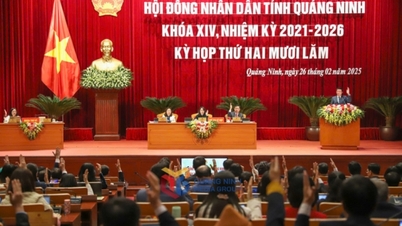



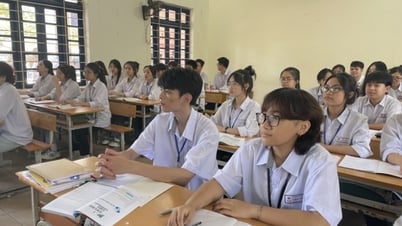


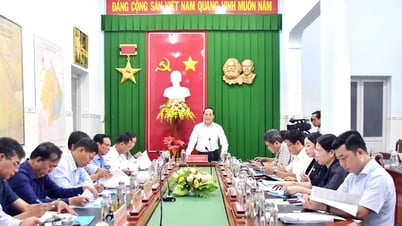












































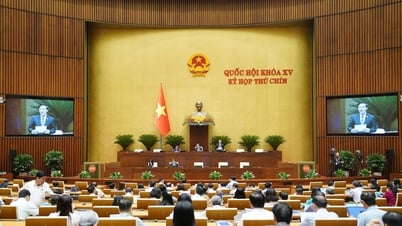









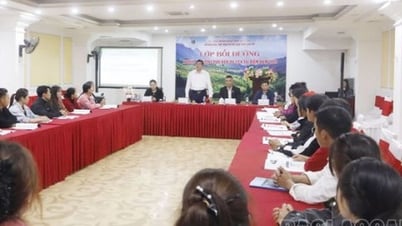
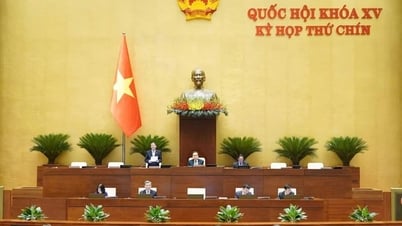

















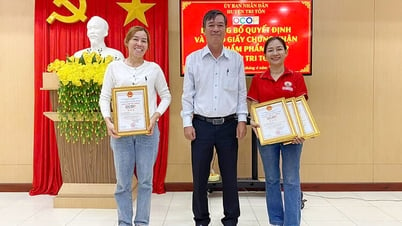





Comment (0)